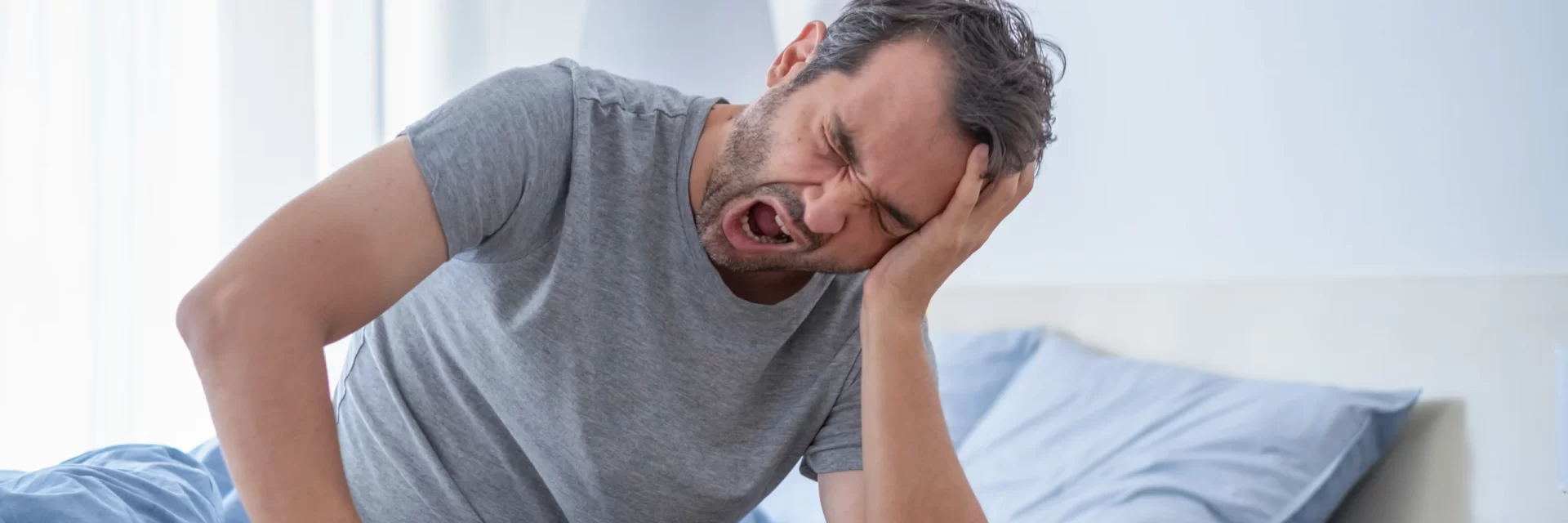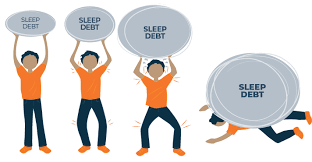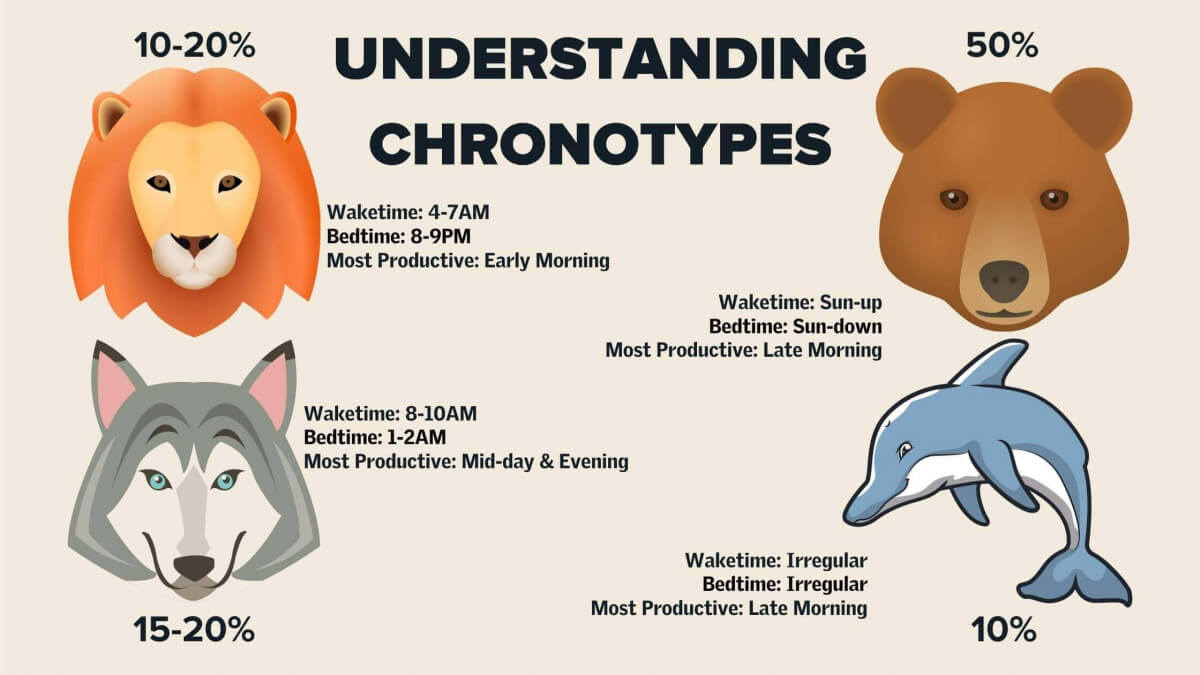
Waking up tired after 8 hours of sleep?
Are you still waking up tired after 8 hours of sleep? Learn more about the reasons why and how to fix it!
Are you still waking up tired after 8 hours of sleep? Learn more about the reasons why and how to fix it!
Getting a good sleep is proven to improve your brain performance, mood, energy and overall health! So why are you still feeling tired after clocking in eight solid hours?
There are many reasons why you may still be feeling tired after eight hours of sleep. Everyone has different sleep needs and there is not one size fits all but here are some reasons to blame for a bad sleep and some tips and tricks to get help you make the most of your eight hours of sleep at night.

Why am i waking up tired after 8 hours of sleep?
Sleep hygiene are the healthy habits, behaviours, and environmental factors that can likely be adjusted to improve your sleep! You may be waking up tired because you have bad sleep habits that are impacting your quality of sleep.
Poor sleep environment or routine.
Creating a sleep schedule, ideally based around your chronotype will significantly help your quality of sleep. Going to bed and getting up at the same time everyday (or within an hour window), even on weekends and when you are travelings helps your body establish a sleep schedule.
Your bedroom environment is disturbing your sleep.
It is important to have a cool, quiet, and dark environment to sleep. Try not to watch television, use your phone or tablet while in bed! Light (especially blue light) from devices may make it difficult to fall asleep and the sound of shows or movies may keep you in a light sleep, not allowing you to get the rest you need!
You are exercising too late in the day.
Exercise at regular times each day but not within 3 hours of your bedtime! Exercising will help you to get a better sleep but not if it is too close to the time you are trying to go to sleep. Your heart rate may stay elevated resulting in a poor quality of sleep.
You have a distributive bed parter.
Sharing a bed may be impacting your quality sleep. A bed partner that is snoring more moving may be causing you to to have a poor sleep quality struggle to get restful sleep.
Alcohol.
Drinking alcohol elevates your heart rate and even if you think it is helping you fall asleep or stay asleep, it is definitely not helping your sleep quality.
Caffeine.
Caffeine has a prolonged half life (which is a fancy way of saying it stays in your body for a long time). Try to limit your caffeinated drinks intake to earlier in the day and stop having any caffeine in the afternoon.
You may feel sleepy after a full night’s sleep due to a sleep disorder or medical conditions. These conditions can make you feel tired or make it hard for you to get a good night’s sleep and meet your body’s sleep needs. Some common sleep disorders are:
- Sleep disorders like obstructive sleep apnea, narcolepsy, and restless leg syndrome
- Iron deficiency anemia
- Hypothyroidism (underactive thyroid)
- Diabetes
- Mental health problems like depression and anxiety
- Heart disease
- Chronic fatigue syndrome
A few other common causes may be :
- Nutritional deficiencies
- Side effect of a medication you are currently on
- Pregnancy
- Menopause
If you are meeting your sleep needs and continue to experience daytime fatigue, you should speak to your doctor!
Despite your best efforts, you might not actually be getting the eight hours of sleep you think you are getting. Most people think about the time you spend in bed as your sleep time, however the hours you spend in bed are not equal to the hours of sleep.
In order to understand if you are actually tired after eight hours of sleep, you need to measure your sleep efficiency which is the measure of how long you spend getting deep sleep or restorative sleep. This will help you understand how long it takes you to fall asleep and if you are awake at night.
There are many apps and tools out there to help with this! Personally, I have an Oura ring that monitors my sleep, sleep cycle, average sleep, time falling asleep, heart rate and many other factors and has helped me to understand how little sleep I am actually getting once I am in bed. I have started doing more mind fullness activities and establish a sleep routine that has drastically improved my sleep efficiency.
Despite you doing your bed to get the right amount of time in bed, you still may not be getting enough time asleep!
You can help fix this by going to bed earlier, even by 30 mins every night to give yourself a better chance at getting the sleep you need!

Sleep debt is the the running total of how much sleep you owe to your body and is compared against your sleep needs. If you continuously are getting below what your body needs and are sleep deprived, you build up a significant sleep debt.
Even when you do get eight hours of sleep, you may still be feeling tired because you have outstanding sleep debt you owe you body. Your body wants to keep sleeping to pay back its debt!
You might have high sleep debt because you have not give yourself enough time to sleep on a nightly basis. If you a reading this and you are a shift worker, you will be very aware of this feeling when you are doing nights and you just cannot catch up on your sleep. Shift workers and those who do not get enough sleep on a regular basis often are at higher risk of health issues like high blood pressure, stroke, diabetes and obesity!
It is essential to monitor, track and manage your sleep quality and start to pay back your sleep debt. You can start to pay back your today by getting more sleep. You can do this by taking naps, going to bed earlier, waking up a little later and improving your overall sleep hygiene to improve your sleep efficiency!
Sleep experts have identified sleep Chronotypes that are related to circadian rhythm, which controls the day-to-day sleep-wake cycle and releases melatonin in response to the environmental environment (light and temperature). While circadian rhythm can manipulated or trained with a strict schedule, the underlying chronotype exists on a more permanent basis. A chronotype is the body’s natural inclination towards a certain sleep routine. This is commonly referred to as being an ‘early bird’ or a ‘night owl’ but there is more to it than that. Chronotype has an impact on appetite, exercise, and core body temperature and you may feel more alert or sleepier at certain periods of day that are different than others.
Understanding that there you may need more or less sleep than the average person will help you feel with increasing your energy levels!
There is a common online quiz that was made by Dr. Michael Breus, who describes four kinds of chronotypes, based on sleep-wake patterns seen in animals. The quiz will tell you whether you are more of a bear, wolf, lion, or dolphin :
- Lion: The lion chronotype stands in for the early bird. These individuals wake up early and are most productive in the morning, but may have more trouble following a social schedule in the evenings.
- Bear: According to Dr. Breus, the bear chronotype makes up about 55% of the population. People with this intermediate chronotype tend to follow the sun. They do well with traditional office hours but also have no problem maintaining a social life in the evenings.
- Wolf: The wolf chronotype is equivalent to the classic night owl, and is believed to make up approximately 15% of the population.
- Dolphin: The dolphin chronotype is based on the ability of real dolphins to stay alert even while sleeping. Human “dolphins” are best described as insomniacs.
Personally, I had always believed that I was Lion and tried to ensure my sleep schedule was early to bed and early in the morning. After doing the quiz, I learned I am more closely aligned to a Dolphin and have changed many of my sleep habits based on my chronotype needs. This has had a huge impact on my sleep efficiency and my restorative sleep time.

Now that you understand all the reasons why you may don’t feel energized after getting 8 hours of sleep in, let’s talk about what you can do to improve.
- Create a sleep schedule and stick to it
- Exercise earlier in the day (>3 hours before you plan to go to sleep) – here are 25 healthy habits to improve your day
- Create an ideal sleep environment
- Keep your diet in mind and avoid eating large meals around bed time
- Avoid caffeine late in the day
- Avoid alcohol
- Track your sleep
- Seek help from a professional – you may need to visit a sleep clinic or do a sleep study to find out what is going on!
- Get a sunrise alarm clock to wake up slowly and naturally!
Apps to Help You Sleep.
Aside from the tips outlined above, there are some really helpful apps and tools you can use to help you get a better quality of sleep:
Monitor your sleep
SleepScore
- The SleepScore app will help you improve your sleep. It allows you to se sleep goals and gives you advice to reach your goals. It provides detailed sleep-stage data and helps you wake up slowly so you feel less tired and groggy.
SleepCycle
- SleepCycle is another app that can help you track your sleep. It has less features than SleepScore but is easy to use!
Falling Asleep
Calm
- Calm is the ideal app for anyone exploring alternative ways to relax before bed and sleep better. The app is easy to use and navigate and allows you to choose what you like.
Devices and Wearables to Help You Sleep.
Oura Ring
- This is my personal favourite and has been a game changer for me. The Oura ring is a smart ring that uses sensors to track a variety of health metrics, which are available to view on the company’s Oura app. The app generates scores, trends and unique insights for you to to help you with your sleep.
WHOOP Strap
- Similar to the Oura ring, the WHOOP strap analyzes the quality of your sleep. It provides you with measurements of your sleep and tracks against your bodies needs. If you prefer bracelets over rings, this is the wearable for you.
